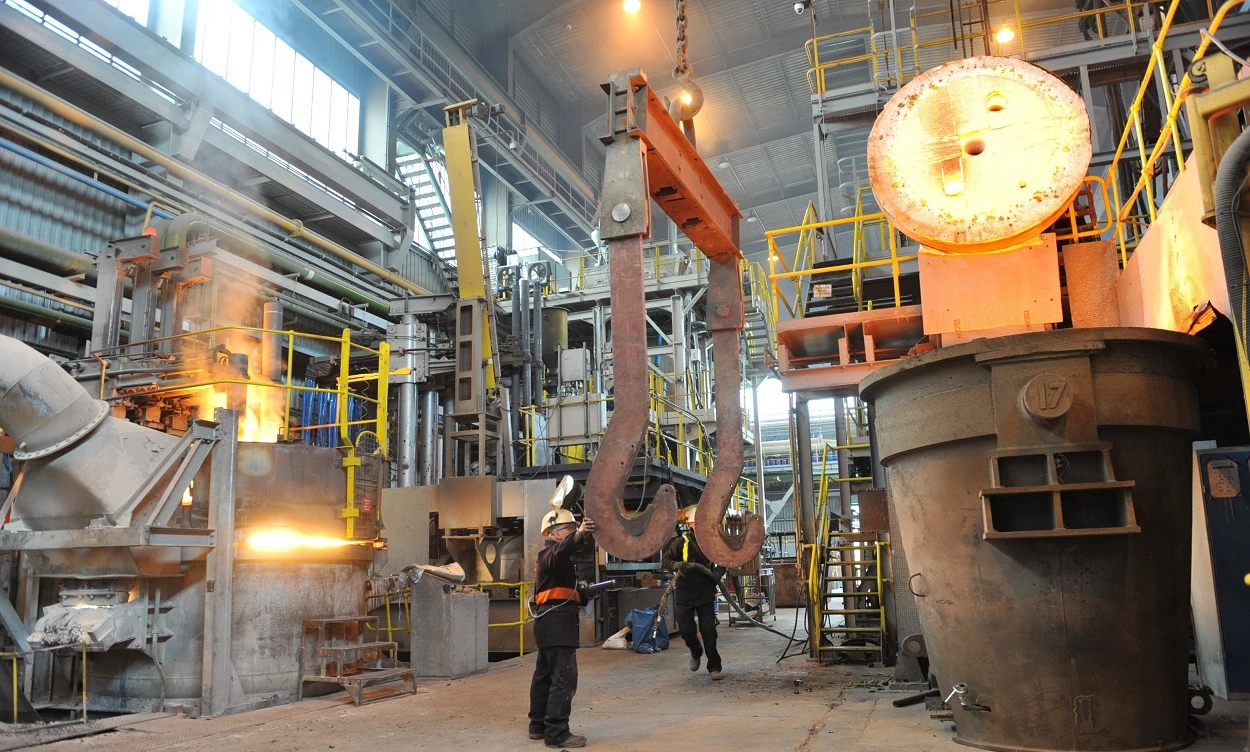
Partner Article
Materials Processing Institute Partners With Nanomox To Research Potential Of Creating Hydrogen From Steel Sludge
Nanomox is partnering with the Materials Processing Institute to develop a process capable of producing carbon-free hydrogen from steelmaking sludges.
Funded by the Department for Business, Energy, and Industrial Strategy (BEIS), through its Industrial Hydrogen Accelerator Programme under the Net Zero Innovation Portfolio (NZIP), the £173,000 feasibility study also seeks to extract valuable materials, including zinc, from the waste.
With 6.7 million tonnes of steelmaking sludge stockpiled in the UK and 90,000 tonnes generated annually, a breakthrough would deliver widespread economic and environmental benefits.
The use of carbon-free ‘green’ hydrogen would transform the steel industry, currently one of the largest contributors to carbon dioxide emissions, by replacing coke and other polluting fossil fuels that currently power furnaces and convert iron ore to iron metal.
The feasibility study is based at both Imperial College, London, and the Materials Processing Institute’s Teesside campus. It is envisaged the project will be scaled up into a two-year demonstration project, initially involving the Institute’s hi-tech Normanton steel plant before transferring to an operational steelworks.
Nanomox, an innovative spin-off from Imperial College London, has developed a patent pending process using green catalytic solvents at low temperatures to achieve direct oxidation of metals, which offers enormous energy efficiency improvements over existing technologies.
This patent pending process can treat metal-containing wastes whilst producing significant volumes of hydrogen that can fuel the steelmaking process. In addition, it will reduce reliance on energy intensive pyrometallurgical processes while cutting the amount of material ending up in landfill.
The Materials Processing Institute, a national centre for innovation for the foundation industries, will call upon its expertise in the steel sector together with its extensive research into the recovery of zinc from steel waste.
The feasibility study will gather data on hydrogen production rates, together with the quality and optimisation of the process conditions. It will then be followed by a proposal to use the Institute’s onsite steelmaking works, which also includes a zinc removal pilot plant.
Chris McDonald, Chief Executive of the Materials Processing Institute, said: “The Institute is excited to be working with Nanomox to develop and perfect a process that has the potential to bring huge environmental and commercial benefits to the steel sector.
“A successful outcome would reduce CO2 emissions whilst improving profitability through significant cost and energy efficiencies together with the ability to recover and recycle valuable materials.” Francisco Malaret, Chief Executive at Nanomox, said: ‘We are thrilled to work with the Materials Processing Institute to unlock the full potential of our oxidative ionothermal process and make steel manufacturing more sustainable’.
This was posted in Bdaily's Members' News section by News Gathering .
Enjoy the read? Get Bdaily delivered.
Sign up to receive our popular morning National email for free.






 A legacy in stone and spirit
A legacy in stone and spirit
 Shaping the future: Your guide to planning reforms
Shaping the future: Your guide to planning reforms
 The future direction of expert witness services
The future direction of expert witness services
 Getting people into gear for a workplace return
Getting people into gear for a workplace return
 What to expect in the Spring Statement
What to expect in the Spring Statement
 Sunderland leading way in UK office supply market
Sunderland leading way in UK office supply market
 Key construction developments in 2025
Key construction developments in 2025
 Mediation must be part of planning process
Mediation must be part of planning process
 From apprentice to chief financial officer
From apprentice to chief financial officer
 Don't stifle growth with apprenticeship cuts
Don't stifle growth with apprenticeship cuts
 The start-up landscape: What lies ahead in 2025
The start-up landscape: What lies ahead in 2025
 JATCO adds welcome drive to automotive sector
JATCO adds welcome drive to automotive sector